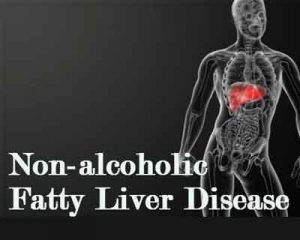- Home
- Editorial
- News
- Practice Guidelines
- Anesthesiology Guidelines
- Cancer Guidelines
- Cardiac Sciences Guidelines
- Critical Care Guidelines
- Dentistry Guidelines
- Dermatology Guidelines
- Diabetes and Endo Guidelines
- Diagnostics Guidelines
- ENT Guidelines
- Featured Practice Guidelines
- Gastroenterology Guidelines
- Geriatrics Guidelines
- Medicine Guidelines
- Nephrology Guidelines
- Neurosciences Guidelines
- Obs and Gynae Guidelines
- Ophthalmology Guidelines
- Orthopaedics Guidelines
- Paediatrics Guidelines
- Psychiatry Guidelines
- Pulmonology Guidelines
- Radiology Guidelines
- Surgery Guidelines
- Urology Guidelines
Obesity detrimental to liver health in Kids as Young as 8 Years Old

The nonalcoholic fatty liver disease occurs when too much fat accumulates in the liver and triggers inflammation, causing liver damage. The condition affects an estimated 80 million people in the U.S. and is the most common chronic liver condition in children and adolescents. While the disease is generally symptomless, the progression of the nonalcoholic fatty liver disease can lead to cirrhosis (scarring) of the liver and, in some instances, liver cancer.Dr.Jennifer Woo Baidal, MD, MPH, assistant professor of pediatrics at Columbia University and colleagues conducted Study to evaluate fatty liver risk factors in younger children.The researchers found that weight gain may have a negative impact on liver health in children as young as 8 years old. The study found that bigger waist circumference at age 3 raises the likelihood that by age 8, children will have markers for nonalcoholic fatty liver disease.The study has been published in The Journal of Pediatrics.
“With the rise in childhood obesity, we are seeing more kids with the nonalcoholic fatty liver disease in our pediatric weight management practice,” said Jennifer Woo Baidal, MD, MPH, assistant professor of pediatrics at Columbia University Vagelos College of Physicians and Surgeons and lead author of the paper. “Many parents know that obesity can lead to type 2 diabetes and other metabolic conditions, but there is far less awareness that obesity, even in young children, can lead to serious liver disease.”
The researchers measured blood levels of a liver enzyme called ALT—elevated ALT is a marker for liver damage and can occur in individuals with the nonalcoholic fatty liver disease and other conditions that affect the liver—in 635 children from Project Viva, an ongoing prospective study of women and children in Massachusetts.
By age 8, 23 percent of children in the study had elevated ALT levels. Children with a bigger waist circumference (a measure of abdominal obesity) at age 3 and those with greater gains in obesity measures between ages 3 and 8 were more likely to have elevated ALT. Approximately 35 percent of 8-year-olds with obesity had elevated ALT versus 20 percent of those with normal weight.
“Some clinicians measure ALT levels in at-risk children starting at around 10 years old, but our findings underscore the importance of acting earlier in a child’s life to prevent excess weight gain and subsequent liver inflammation,” says Woo Baidal, who is also director of pediatric weight management and a pediatric gastroenterologist in the Center for Adolescent Bariatric Surgery at NewYork-Presbyterian Morgan Stanley Children’s Hospital. “Currently, the best way for kids and adults to combat fatty liver disease is to lose weight, by eating fewer processed foods and getting regular exercise. We urgently need better ways to screen, diagnose, prevent, and treat this disease starting in childhood.”
The study is titled, “Associations of Early to Mid-Childhood Adiposity with Elevated Mid-Childhood Alanine Aminotransferase Levels in the Project Viva Cohort.” Additional authors are Erin Elbel (CUIMC), Joel Lavine (CUIMC), Sheryl Rifas-Shiman (Harvard Medical School and Harvard Pilgrim Health Care Institute, Boston, MA), Matthew Gillman (National Institutes of Health, Bethesda, MD, and Elsie Taveras (Massachusetts General Hospital, Boston, MA).

Disclaimer: This site is primarily intended for healthcare professionals. Any content/information on this website does not replace the advice of medical and/or health professionals and should not be construed as medical/diagnostic advice/endorsement or prescription. Use of this site is subject to our terms of use, privacy policy, advertisement policy. © 2020 Minerva Medical Treatment Pvt Ltd